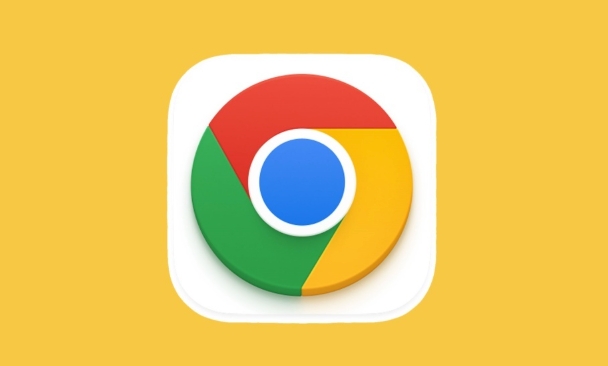The sliding stuttering of Chrome browser can be solved by the following methods: 1. Reduce extension plug-ins, close or uninstall infrequent plug-ins, especially ad blocking and social sharing plug-ins, and use incognito mode to test whether it is caused by the plug-in; 2. Clean up cache and browse data, enter settings to clear cookies and cache files and restart the browser; 3. Adjust hardware acceleration settings, try to turn off the function or update the graphics card driver to eliminate conflicts; 4. Update the browser and system to the latest version to fix possible performance problems and bugs. Sequentially checking usually finds the cause and improves fluency.

Chrome browser suddenly stuttered while using it, especially when the web pages are swiping up and down, which is really annoying. This situation is actually very common, and there may be several reasons, but most of the time it can be significantly improved with a few simple adjustments.

1. Reduce the impact of extension plugins
Although Chrome's extension plug-ins are convenient, they are also one of the common reasons why browsers are slowed down. Some plugins continue to run in the background, occupying a lot of resources, especially when you open multiple tabs.

- Try to close or uninstall uncommon plugins
- Pay special attention to ad blocking and social sharing plug-ins, which have a great impact on performance
- You can use "Incognito mode" to test whether it is a stutter caused by plug-ins (Incognito mode does not load plug-ins by default)
It is recommended to clean up the plugin list regularly and retain only the features you really need.
2. Clean up cache and browse data
After using Chrome for a long time, a lot of caches and cookies will accumulate, which may also affect scrolling fluency, especially after visiting a large number of pictures or video websites.

- Go to Settings > Privacy and Security > Clear browsing data
- Select "Past Hour" or "All Times" in the time range
- Check "Cookies and other website data", "Cached pictures and files"
After cleaning up, restart the browser, and sometimes you can feel the changes immediately.
3. Adjust hardware acceleration settings
Chrome enables hardware acceleration by default to improve performance, but if there is a problem with your graphics card driver or configuration conflicts, it will cause lag.
- Search "Hardware Acceleration" in settings to find the relevant options
- Try closing it and restarting the browser to see if there is any improvement
- If you are not sure, you can also keep it on first, update the graphics card driver and then observe
Different computer environments vary greatly. There is no unified best solution for this setting, and the best one is suitable for you.
4. Update your browser and system
Older versions of Chrome may have performance issues or bugs, and the official will usually fix these issues in new versions.
- Check if Chrome is the latest version (Help > About Google Chrome)
- Also make sure the operating system remains updated
Sometimes a small version upgrade can solve the long-standing problem of lag.
Basically, these are the more common optimization directions. Not every method is suitable for everyone, but if you check it in order, you can usually find the reason. Scrolling lags may seem like a minor problem, but it will really affect efficiency when you use it every day, so it is still worth it to take some time to adjust it.
The above is the detailed content of How to fix laggy scrolling in Chrome. For more information, please follow other related articles on the PHP Chinese website!

Hot AI Tools

Undress AI Tool
Undress images for free

Undresser.AI Undress
AI-powered app for creating realistic nude photos

AI Clothes Remover
Online AI tool for removing clothes from photos.

Clothoff.io
AI clothes remover

Video Face Swap
Swap faces in any video effortlessly with our completely free AI face swap tool!

Hot Article

Hot Tools

Notepad++7.3.1
Easy-to-use and free code editor

SublimeText3 Chinese version
Chinese version, very easy to use

Zend Studio 13.0.1
Powerful PHP integrated development environment

Dreamweaver CS6
Visual web development tools

SublimeText3 Mac version
God-level code editing software (SublimeText3)
 Google Chrome Speed ??Browser Official Edition Portal
Jul 08, 2025 pm 02:30 PM
Google Chrome Speed ??Browser Official Edition Portal
Jul 08, 2025 pm 02:30 PM
Google Chrome is a free and fast multi-platform web browser developed by Google. It is known for its speed, stability and reliability. Chrome is based on the open source Chromium project and is widely used on devices such as desktops, laptops, tablets and smartphones. The browser has a clean interface and a wide range of customizable options, allowing users to personalize it according to their preferences. In addition, Chrome has a huge library of extensions that provide additional features such as ad blocking, password management and language translation, further enhancing the browsing experience.
 How to install Chrome extensions on mobile (Kiwi, etc.)
Jul 11, 2025 am 12:50 AM
How to install Chrome extensions on mobile (Kiwi, etc.)
Jul 11, 2025 am 12:50 AM
Android phones can install Chrome extensions through KiwiBrowser. KiwiBrowser is an open source browser based on Chromium on the Android side. It supports the installation of the Chrome Web Store extension. The process is: Open Kiwi and enter the Chrome store, search for extensions, and click "Add to Chrome" to complete the installation; when using it, you need to pay attention to network stability, extension compatibility, permission granting and installation quantity; other alternatives include FirefoxMobile and YandexBrowser, but Kiwi is still the most stable and convenient choice at present.
 How to change the user agent string in Safari without extensions?
Jul 11, 2025 am 12:48 AM
How to change the user agent string in Safari without extensions?
Jul 11, 2025 am 12:48 AM
On macOS, you can modify Safari's UserAgent through developer tools or terminals, but iOS/iPadOS does not support it. The specific methods are: 1. Use the developer tools to modify temporarily: select preset UA after enabling the development menu; 2. Permanent modification through the terminal: enter the command to write a custom UA; 3. iOS/iPadOS cannot be modified directly, and it needs to rely on a third-party application or browser.
 What firewall ports does Chrome Remote Desktop use
Jul 13, 2025 am 12:43 AM
What firewall ports does Chrome Remote Desktop use
Jul 13, 2025 am 12:43 AM
ChromeRemoteDesktopusesport443(HTTPS)astheprimaryportforsecureconnections,andoccasionallyport80(HTTP)asafallback.ItalsoleveragesSTUN,TURN,andICEprotocolstoestablishpeer-to-peerconnections,withTURNactingasarelayifdirectconnectionsfail.Toensuresmoothop
 How to view chrome incognito history?
Jul 09, 2025 am 12:31 AM
How to view chrome incognito history?
Jul 09, 2025 am 12:31 AM
Chrome's incognito browsing history cannot be viewed directly, but it can be obtained indirectly through three methods. 1. Use command line tools to view the DNS cache, which can only obtain some domain name information and is not durable; 2. Check the router or network monitoring log, which requires certain network knowledge and depends on network settings; 3. Install third-party monitoring tools and configure in advance to record invisible browsing behavior. Overall, the invisibility mode is designed to protect privacy. All the above methods have limitations. It is recommended to choose whether to use monitoring methods based on actual needs.
 How to simulate different timezones in Chrome
Jul 13, 2025 am 12:19 AM
How to simulate different timezones in Chrome
Jul 13, 2025 am 12:19 AM
To test page behavior in different time zones in Chrome, there are three ways to do it. 1. Use ChromeDevTools to simulate the time zone: Open DevTools → Click on three points → MoreTools → Sensors, check the overlay option in the DateandTime section and select the target time zone. This setting only takes effect in the current session; 2. Specify the time zone through the command line startup parameters: close all Chrome instances and execute chrome.exe--timezone="target time zone" to affect the entire browser instance; 3. Use JavaScript to overwrite the behavior of the Date object, and the fixed time value is used to accurately control the JS time.
 How to force quit Google Chrome on Mac
Jul 07, 2025 am 12:14 AM
How to force quit Google Chrome on Mac
Jul 07, 2025 am 12:14 AM
There are several ways to force exit from unresponsive Chrome on your Mac. First, use the keyboard shortcut Command Option Esc to open the "Force Exit Application" window, select Google Chrome and click "Force Exit". Second, click on the Apple menu, select "Force Exit", and select Chrome from the list and confirm quit. If Chrome completely freezes or consumes too much memory, you can open ActivityMonitor, find all Chrome-related processes, and click the X button one by one to end them. Finally, as an alternative, you can enter killallGoogle\Chrome in Terminal
 How to stop Microsoft Edge from running in the background
Jul 16, 2025 am 12:34 AM
How to stop Microsoft Edge from running in the background
Jul 16, 2025 am 12:34 AM
There are four ways to turn off Microsoft Edge backend running. 1. Disable background running in Edge settings: Go to "Settings" → "System" and turn off the "Run Microsoft Edge in the background" option. 2. Close Edge in Windows startup item: Through the "Startup" tab of Task Manager, right-click Edge and select "Disable". 3. Modify the group policy or registry: Advanced users can create BackgroundModeEnabled registry key and set it to 0, or use the official group policy template. It is recommended to back up the system before operation. 4. Use Task Manager to manually end the process: temporary emergency plan, press Ctrl Shift Esc to open the Task Manager to end all Es






